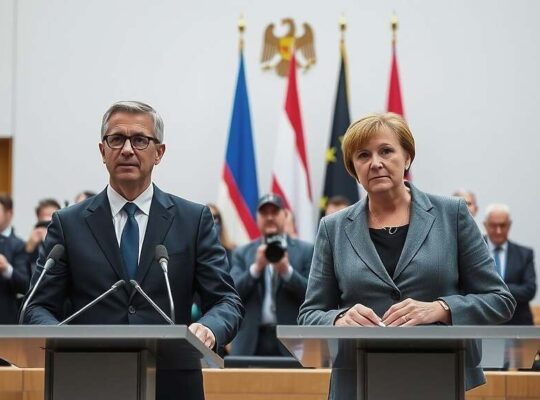Germany’s economic trajectory is facing a “dramatic” downturn, demanding a radical overhaul of government policy that surpasses the current coalition agreement, according to Ifo Institute President Clemens Fuest. A newly released Ifo study, detailed in Bild am Sonntag, reveals a concerning divergence between soaring state spending and a stagnation of private investment, raising serious questions about the nation’s future prosperity.
The study highlights a 25% increase in state consumption since 2015, while corporate investments remain stagnant, currently mirroring levels from 2015. This imbalance, Fuest argues, is creating a perilous cycle: dwindling private investment translates directly into reduced economic growth, lower tax revenues and ultimately, a diminished capacity for the government to provide essential services. The potential for a decline in living standards, already experienced by “millions of citizens” is prompting warnings reminiscent of Italy’s economic struggles.
Fuest is openly critical of the current government’s approach, deeming current reform efforts insufficient to address the deepening crisis. He is explicitly calling for a “comprehensive reform package” to be presented within the next six months, with a hard deadline of Spring 2026. This package, he insists, must move beyond the limited scope of the existing coalition agreement and tackle fundamental structural issues.
Specific points of reform proposed by Fuest include a cessation of policies like the “mothers’ pension” coupled with a commitment to curtailing further increases in contributions. A core tenet of his proposal involves significant deregulation and bureaucratic relief for businesses – notably the elimination of extensive documentation requirements related to carbon emissions, supply chains and minimum wage compliance. If implemented, he estimates these measures could unlock an additional €146 billion in economic output annually.
The urgency of the situation underscores a growing debate within Germany regarding the long-term sustainability of its social and economic model. Fuest’s sharp criticism and ambitious reform agenda are likely to intensify this debate and put pressure on the government to fundamentally reassess its economic priorities and embrace potentially unpopular, yet crucial, structural changes. The credibility of the current leadership and the stability of Germany’s economic standing depend on the swift and decisive action taken in response to this stark warning.












